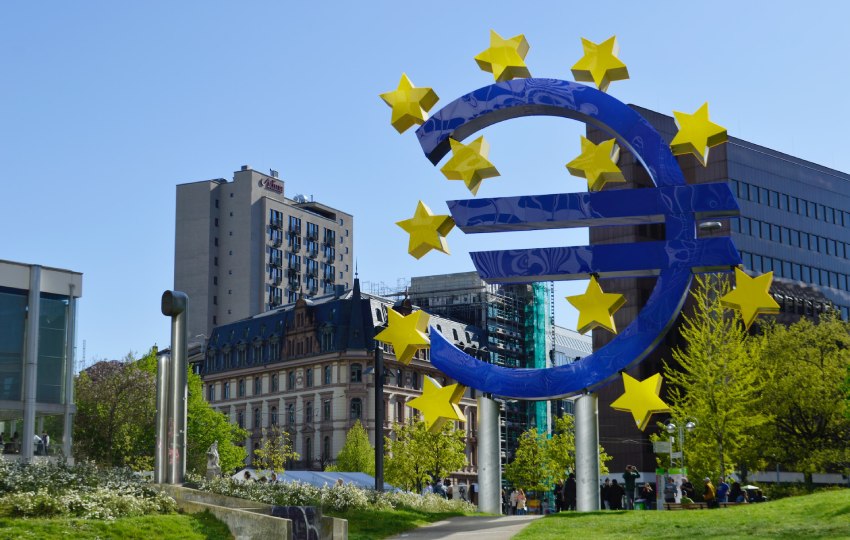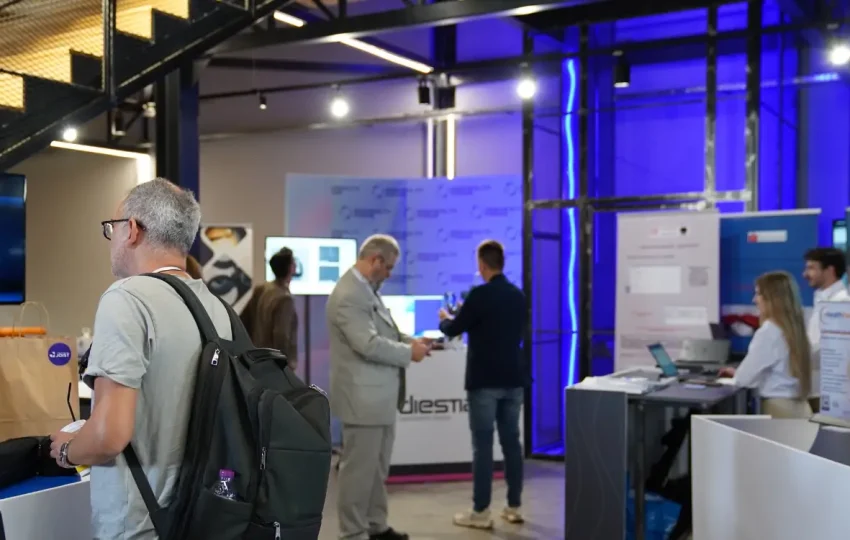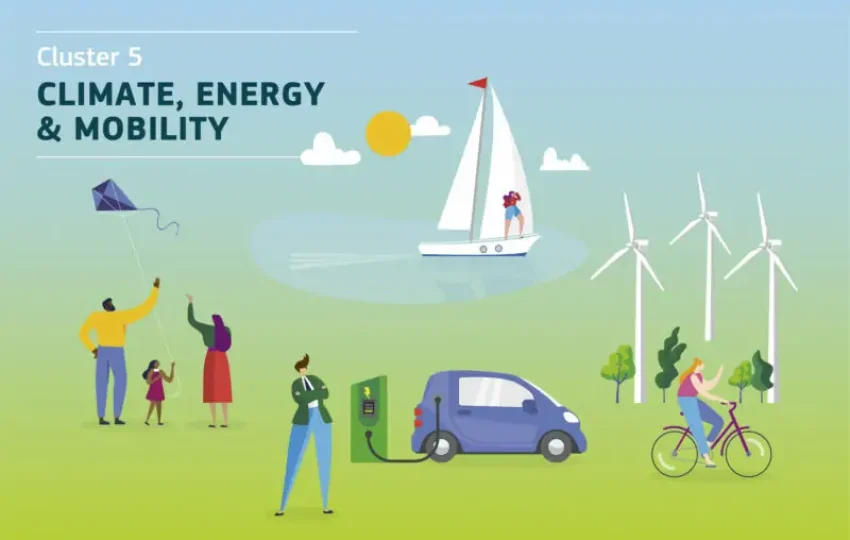The European Union (EU) offers a myriad of opportunities for businesses and organizations aiming to participate in European projects. However, for many newcomers, understanding how to participate in a European project and navigating the intricate maze of EU funding can be daunting. If you’re one of them, this guide is for you.
1. Understand the Basics of EU Funding
EU funding is a financial tool set up by the European Union to support projects and initiatives that align with its objectives. Here’s a breakdown of the basics:
- Types of Funding: The EU provides both direct and indirect funding. Direct funding is allocated directly by the EU to recipients, while indirect funding is managed by national and regional authorities.
- Areas of Focus: EU funding covers a wide range of sectors, from research and innovation to agriculture, environment, and regional development. It’s essential to identify which area aligns with your organization’s goals.
- Eligibility: Not every organization can apply for every funding opportunity. Each EU programme has specific criteria based on the type of project, the sectors involved, and the countries participating.
- Duration and Budget: European projects can vary in duration, from short-term projects of a few months to long-term initiatives spanning several years. The budget for these projects can range from a few thousand euros to several million, depending on the scope and objectives.
By understanding these basics, you’ll be better equipped to participate in a European project that aligns with your organization’s goals.
2. Identify the Right EU Programme for Your Organization
The European Union offers a diverse range of programmes tailored to support various sectors and objectives. Choosing the right programme for your organization is crucial to ensure alignment with the EU’s goals and increase your chances of securing funding. Here are five key EU programmes and the types of organizations they’re best suited for:
- Horizon Europe:
- Description: This is the EU’s flagship programme for research and innovation. It aims to drive scientific excellence, boost the EU’s competitiveness, and tackle societal challenges.
- Best for: Research institutions, universities, tech startups, and companies focused on cutting-edge innovation and scientific research.
- Erasmus+:
- Description: Erasmus+ focuses on education, training, youth, and sports. It provides opportunities for over 4 million Europeans to study, train, and gain experience abroad.
- Best for: Educational institutions, training providers, youth organizations, and sports clubs.
- COSME (Programme for the Competitiveness of Enterprises and Small and Medium-sized Enterprises):
- Description: COSME aims to enhance the competitiveness and sustainability of the EU’s enterprises, particularly SMEs.
- Best for: Small and medium-sized enterprises (SMEs), business networks, and entrepreneurship-focused organizations.
- LIFE (The Financial Instrument for the Environment and Climate Action):
- Description: LIFE supports environmental, nature conservation, and climate action projects throughout the EU.
- Best for: Environmental NGOs, local and regional authorities, and businesses with a focus on sustainability and environmental conservation.
- Creative Europe:
- Description: This programme supports the European cultural and creative sectors, encompassing both the culture and media sub-sectors.
- Best for: Cultural organizations, film producers, audiovisual professionals, artists, and creators.
By understanding the primary objectives and focus areas of each EU programme, organizations can better align their projects with the most suitable funding source, maximizing their chances of success.
3. Stay Updated with Open Calls
Open calls are announcements for project proposals. They specify the project’s objectives, the available funding, and the criteria for participation. Websites like EUcalls are excellent resources to stay updated with the latest open calls and understand how to participate in European projects effectively.
4. Partner Up
Collaboration is often key in European projects. Finding the right partners can significantly enhance the quality and impact of your proposal. Here are some essential tips on how to find the best partners for your European project:
- Search Your Social Media: If you’re active in the EU Projects field, platforms like LinkedIn can be goldmines. Scan your contacts and connections, evaluate their activity, and identify potential partners that align with your proposal’s objectives. Utilizing social media analytics and monitoring tools can further streamline this process.
- Attend Networking Events: Events focused on EU projects are excellent opportunities to meet potential partners. Be prepared to present your organization and its objectives, and seek partners that complement your expertise.
- Leverage Email Marketing: Don’t underestimate the power of a well-crafted email. Reach out to previous or potential partners with a concise and engaging message about your proposal. Highlight its strengths and invite them for a detailed discussion.
- Reconnect with Old Project Partners: Past collaborations can be a reliable source of partners. If you’ve had successful projects with certain partners before, consider reaching out to them again. Familiarity can often lead to smoother collaborations.
- Join an EU Partner Online Network: Platforms like EUcalls.net connect organizations from all over Europe. By joining such networks, you can access a vast pool of potential partners interested in EU projects.
Remember, the key to a successful European project lies not just in a great proposal but also in collaborating with partners that bring expertise, innovation, and a shared vision to the table.
5. Craft a Winning Proposal
Writing a successful proposal for EU funding is both an art and a science. It requires a deep understanding of the EU’s objectives, meticulous attention to detail, and the ability to present your ideas compellingly. Here are six steps, as outlined by Institute of Entrepreneurship Development, to help you craft a winning proposal:
- Find the Right Research Source: Before you start writing, identify the best EU Programme that aligns with your project idea. Whether it’s a scientific research project or one focusing on SMEs and the labour market, ensure you’re targeting the right program, such as Horizon Europe or Erasmus+.
- Identify the Appropriate Call for Proposal: Each EU Programme has multiple calls, each catering to different categories or sectors. Ensure your project aligns with the specific call’s objectives and criteria.
- Join a Highly Experienced Consortium: The strength of your consortium can make or break your proposal. Ensure your team has the necessary expertise to execute the project. For instance, if your project focuses on entrepreneurship, having an entrepreneurship expert in your consortium is crucial.
- Keep Writing Until You Succeed: Experience is invaluable. The more proposals you write, the better you’ll get at understanding what works and what doesn’t. Don’t be disheartened by rejections; use them as learning opportunities.
- Revision is Key: Continuously refine your proposal. Regular revisions can help you identify and rectify potential weaknesses, ensuring your proposal is as strong as possible.
- Seek External Evaluation: Before submitting, consider having your proposal reviewed by an external expert in EU funding. This fresh perspective can offer invaluable insights and potentially identify areas for improvement.
Crafting a successful proposal is a meticulous process, but with the right approach and resources, you can significantly increase your chances of securing EU funding.
6. Understand the Evaluation Process
Once submitted, your proposal will undergo a rigorous evaluation process. Familiarize yourself with the criteria to ensure your proposal ticks all the boxes.
7. Seek Expert Advice
If you’re unsure about any aspect of the process, don’t hesitate to seek expert advice. Many consultancy firms specialize in EU funding and can guide you through the intricacies of the process.
Conclusion
Participating in a European project can be a game-changer for your organization. While the process might seem complex, with the right approach and resources, you can navigate it successfully. Stay informed, collaborate, and seize the opportunities that the EU offers.
Take the Next Step in Your EU Funding Journey
Navigating the world of EU funding can be complex, but with the right tools and resources, you can significantly enhance your chances of success. EUcalls offers tailored solutions to keep you updated on the latest funding opportunities, open calls, and essential insights to boost your proposal’s potential.
Don’t miss out on the opportunities that await. Explore EUcalls’ subscription plans today and empower your organization with the knowledge and tools it needs to thrive in the European funding landscape.


